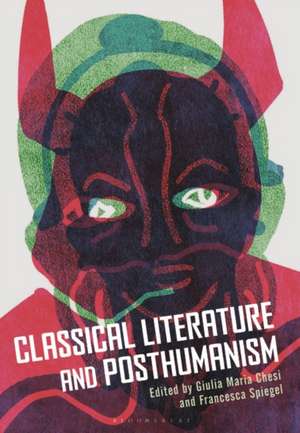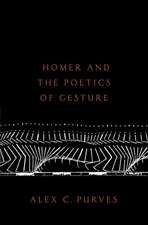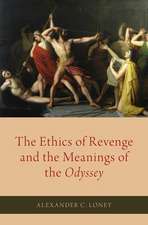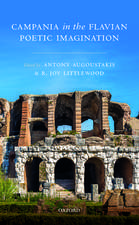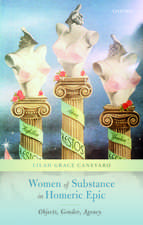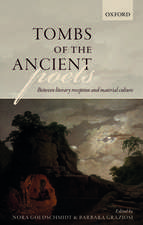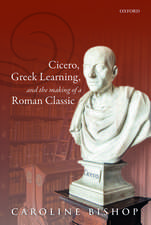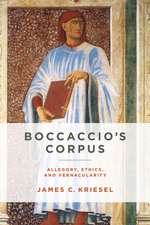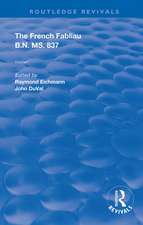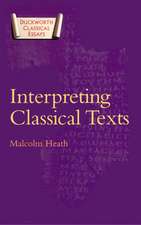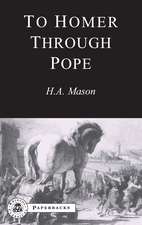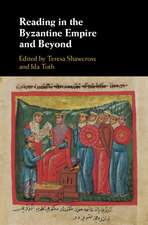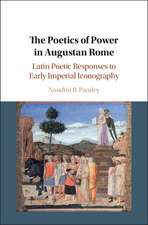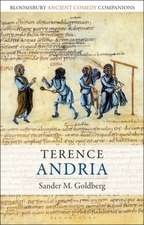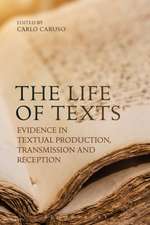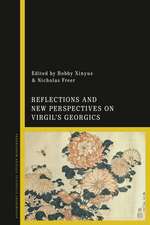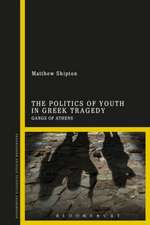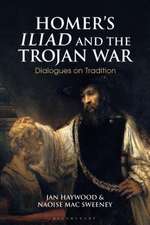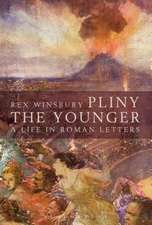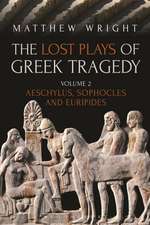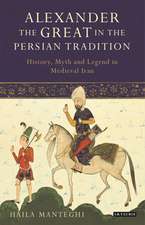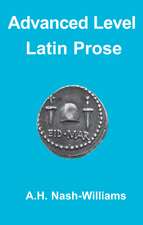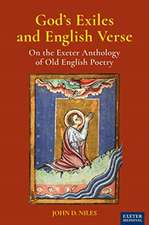Classical Literature and Posthumanism
Editat de Professor Giulia Maria Chesi, Francesca Spiegelen Limba Engleză Paperback – 17 noi 2021
| Toate formatele și edițiile | Preț | Express |
|---|---|---|
| Paperback (1) | 306.48 lei 6-8 săpt. | |
| Bloomsbury Publishing – 17 noi 2021 | 306.48 lei 6-8 săpt. | |
| Hardback (1) | 776.65 lei 6-8 săpt. | |
| Bloomsbury Publishing – 13 noi 2019 | 776.65 lei 6-8 săpt. |
Preț: 306.48 lei
Preț vechi: 369.25 lei
-17% Nou
Puncte Express: 460
Preț estimativ în valută:
58.65€ • 61.16$ • 48.75£
58.65€ • 61.16$ • 48.75£
Carte tipărită la comandă
Livrare economică 21 martie-04 aprilie
Preluare comenzi: 021 569.72.76
Specificații
ISBN-13: 9781350231542
ISBN-10: 1350231541
Pagini: 480
Dimensiuni: 169 x 244 mm
Greutate: 0.76 kg
Editura: Bloomsbury Publishing
Colecția Bloomsbury Academic
Locul publicării:London, United Kingdom
ISBN-10: 1350231541
Pagini: 480
Dimensiuni: 169 x 244 mm
Greutate: 0.76 kg
Editura: Bloomsbury Publishing
Colecția Bloomsbury Academic
Locul publicării:London, United Kingdom
Caracteristici
Contributors from across the globe: Austria, Belgium, Brazil, Finland, France, Germany, Italy, New Zealand, Russia, Sweden, the UK and the US
Notă biografică
Giulia Maria Chesi is Assistant Professor of Greek at the Humboldt University, Berlin.Francesca Spiegel is Adjunct Lecturer at the Center for Gender Studies, Humboldt University, Berlin.
Cuprins
Theoretical Introduction Giulia Maria Chesi and Francesca Spiegel: The Subject of the Human Introductions to Post/human theories 1. Oxana Timofeeva: The question of the animal and the Aristotelian human horse 2. Luciano Nuzzo: Foucault, the monstrous and monstrosity 3. Kirstin Mertlitsch: How to become a cyborg 4. Yuk Hui: Anders, Simondon and the becoming of the Posthuman Part I De/humanization and animals 1. Marianne Hopman: Odysseus, the boar and the anthropogenic machine 2. Tua Korhonen: What is it like to be a donkey (with a human mind)? Pseudo-Lucian's Onos 3. Anne Tuttle Mackay: Quam soli vidistis equi: focalization and animal subjectivity in Valerius Flaccus 4. Chiara Thumiger: Animality, illness and dehumanisation: the phenomenology of illness in Sophocles' Philoctetes 5. Tom Geue: The imperial animal: Virgil's Georgics and the anthropo-/theriomorphic enterprise 6. Manuela Giordano: Animals, governance and warfare in the Iliad and Aeschylus' Persians 7. Roland Baumgarten: The Sovereign and the beast: images of ancient tyranny Part II The monstrous 8. Jenny Strauss Clay: Typhoeus or cosmic regression (Theogony 821-880) 9. Giovanni Ceschi: Demonic disease in tragedy: illness, animality, and dehumanisation 10. Kathrine Fleming: The Sphinx and another thinking of life 11. Aaron Kachuck: When Rome's elephants weep. Humane monsters from Pompey's theater to Virgil's Trojan Horse 12. James McNamara: The monstrosity of Cato in Lucan's Civil war 13. Maria Gerolemou: Why can't I have wings? Aristophanes' Birds Part III Bodies and entanglements 14. Martin Devecka: The Seer's two bodies: some early Greek histories of technology 15. Johan Tralau: Fluid cypress and hybrid bodies as a cognitively disturbing metaphor in Euripides' Cretans 16. Yuddi Gershon: Body politics in the Antiquitates Romanae of Dionysius of Halicarnassus 17. Antonietta Provenza: The myth of Io, and female cyborgic identity 18. Laura Rosella Schluderer: Cosmic, animal and human becomings: a case study in ancient philosophy 19. Alex Dressler: Post-humanism in Seneca's Happy Life: "animalism", personification, and private property in Roman Stoicism (Epistulae morales 113 and De vita beata 5-8)20. Virginia Burrus: Hagiography without humans: Simeon the Stylite Part IV Objects, machines and robotic devices 21. Nancy Worman: Assemblages and objects in Greek tragedy 22. Anne-Sophie Noel: Hybris and hybridity in Aeschylus' Persians: a post-humanist perspective on Xerxes' expedition 23. Francesca Spiegel: Malfunctions of embodiment: Man/weapon agency and the Greek ideology of masculinity 24. Elena Giusti: Aeneid 12: a cyborg border war 25. Katherine Wasdin: The presence of presents: Speaking objects in Martial's Xenia and Apophoreta 26. Mireille Courrent: Automatopoetae machinae: laws of nature and human invention (Vitruvius IX. 8.4-7) 27. Giulia Maria Chesi & Giacomo Sclavi: Pandora and robotic technology today 28. Agis Marinis: Art, life and the creation of automata. On Pindar, Olympian 7.50-53 29. Alexander Kirichenko: Staying alive: Plato, Horace and the written text 30. Genevieve Liveley: Beyond the beautiful evil? The ancient/future history of sex robots Conclusions Simon Goldhill BibliographyIndex
Recenzii
Classical Literature and Posthumanism . constitutes both a treasury of provocations and ultimately something more than the sum of its parts.
The volume takes an important step in initiating and furthering discussions between the field of Classics and the theories of critical posthumanism.
The volume takes an important step in initiating and furthering discussions between the field of Classics and the theories of critical posthumanism.
